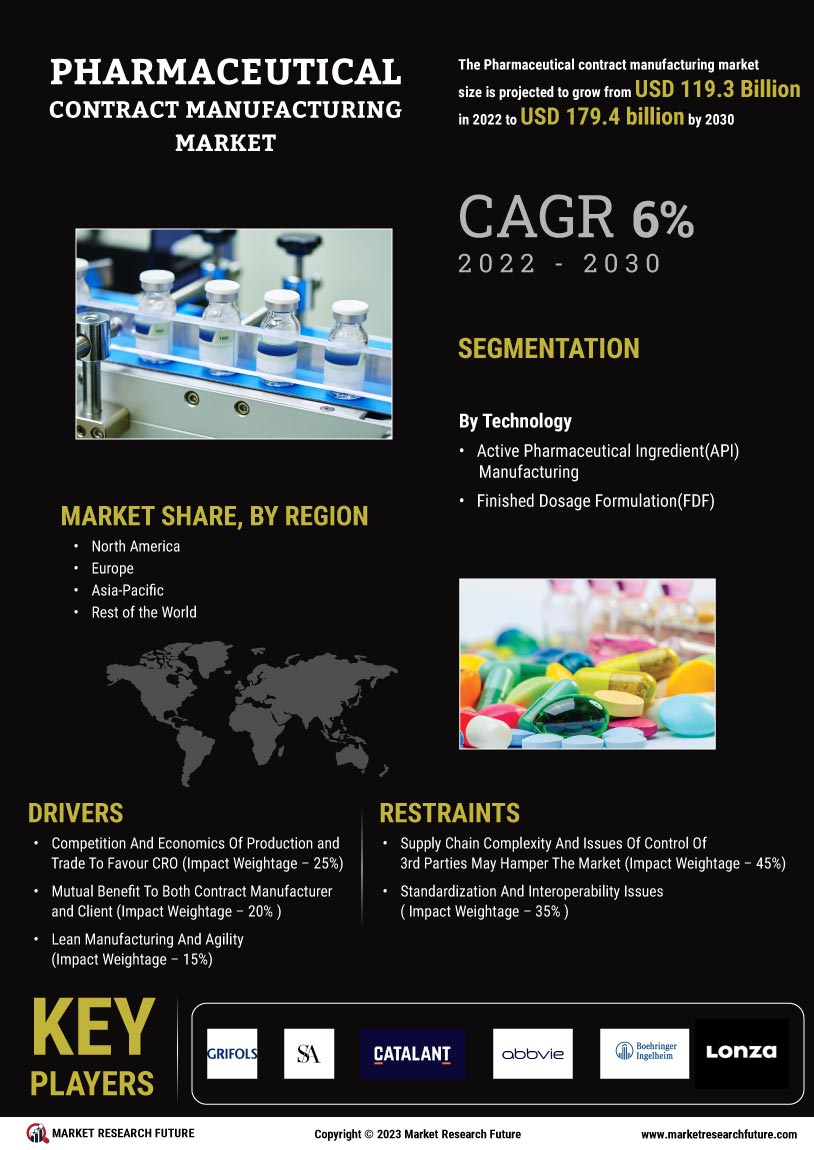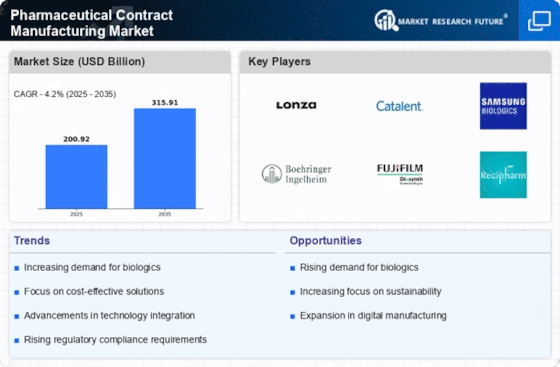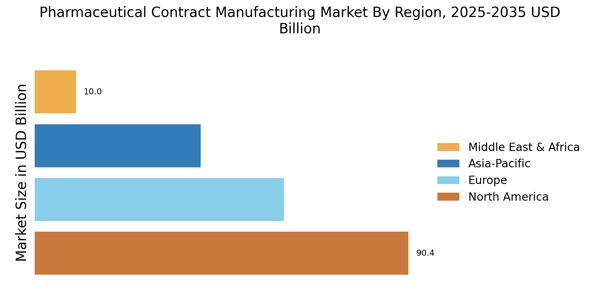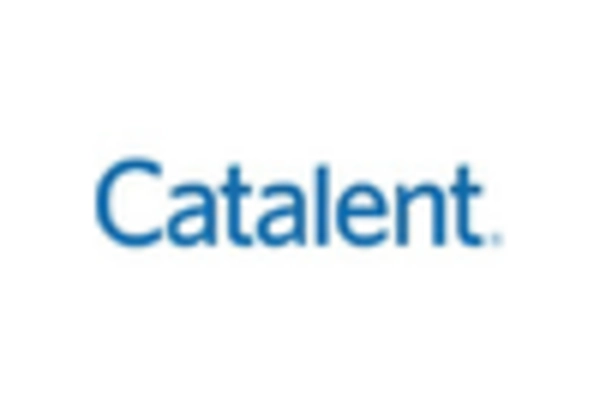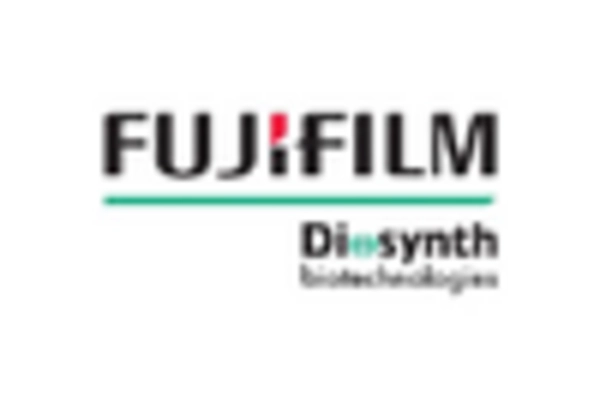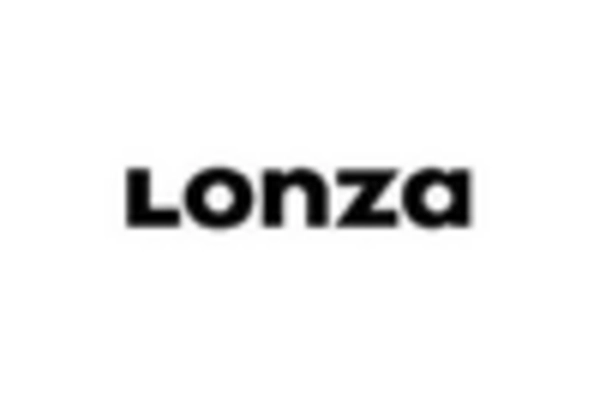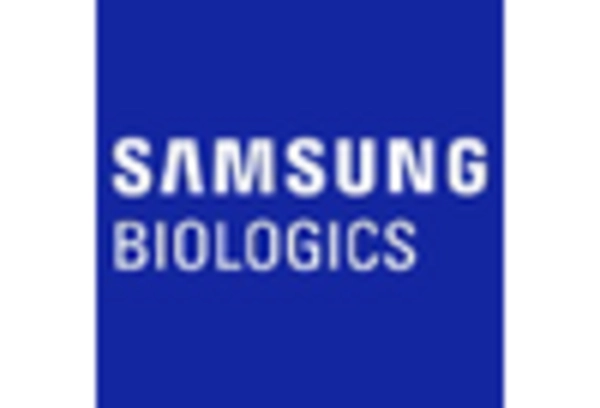Cost Efficiency and Resource Optimization
The Pharmaceutical Contract Manufacturing Market is increasingly driven by the need for cost efficiency and resource optimization. Pharmaceutical companies are under constant pressure to reduce production costs while maintaining high-quality standards. By outsourcing manufacturing processes to contract manufacturers, companies can achieve significant cost savings through economies of scale and reduced capital expenditures. This trend is particularly evident in the production of generic drugs, where contract manufacturers can leverage their established infrastructure to deliver cost-effective solutions. As the market for generics continues to grow, with projections indicating a value of USD 500 billion by 2025, the role of contract manufacturers in providing affordable production options becomes even more critical. This focus on cost efficiency allows pharmaceutical companies to allocate resources more effectively, ultimately enhancing their competitive positioning.
Expansion of Pharmaceutical R&D Activities
The Pharmaceutical Contract Manufacturing Market is significantly influenced by the expansion of research and development (R&D) activities within the pharmaceutical sector. As companies strive to innovate and bring new drugs to market, the need for specialized manufacturing services becomes increasingly apparent. In recent years, pharmaceutical companies have allocated a larger portion of their budgets to R&D, with expenditures reaching approximately USD 200 billion annually. This trend underscores the reliance on contract manufacturers to provide the necessary expertise and infrastructure to support complex drug development processes. By outsourcing manufacturing, pharmaceutical firms can focus on their core competencies while leveraging the capabilities of contract manufacturers to enhance efficiency and reduce time-to-market for new products.
Increasing Demand for Personalized Medicine
The Pharmaceutical Contract Manufacturing Market is experiencing a notable shift towards personalized medicine, driven by advancements in genomics and biotechnology. This trend is characterized by the growing need for tailored therapies that cater to individual patient profiles. As healthcare providers increasingly adopt precision medicine approaches, contract manufacturers are required to develop specialized production processes that accommodate small batch sizes and unique formulations. According to industry estimates, the market for personalized medicine is projected to reach USD 2 trillion by 2025, indicating a substantial opportunity for contract manufacturers to expand their capabilities. This demand for customized solutions necessitates a flexible and responsive manufacturing environment, positioning contract manufacturers as critical partners in the development of innovative therapies.
Regulatory Compliance and Quality Assurance
The Pharmaceutical Contract Manufacturing Market is heavily influenced by the stringent regulatory landscape governing drug production. Compliance with regulations set forth by authorities such as the FDA and EMA is paramount for contract manufacturers. These regulations ensure that products meet safety and efficacy standards, which is critical for maintaining market access. As the industry evolves, the emphasis on quality assurance and regulatory compliance has intensified, leading to increased demand for contract manufacturing services that can navigate these complexities. Companies that demonstrate robust quality management systems and adherence to Good Manufacturing Practices (GMP) are likely to gain a competitive edge. This focus on compliance not only mitigates risks but also enhances the reputation of contract manufacturers in the eyes of pharmaceutical clients.
Emergence of Advanced Manufacturing Technologies
The Pharmaceutical Contract Manufacturing Market is witnessing a transformative phase with the emergence of advanced manufacturing technologies. Innovations such as continuous manufacturing, automation, and artificial intelligence are reshaping production processes, enabling contract manufacturers to enhance efficiency and reduce lead times. These technologies facilitate real-time monitoring and data analytics, which can lead to improved quality control and reduced waste. As pharmaceutical companies increasingly seek to adopt these advanced methodologies, contract manufacturers that invest in cutting-edge technologies are likely to gain a competitive advantage. The integration of these technologies not only streamlines operations but also aligns with the industry's push towards sustainability and environmental responsibility. This trend indicates a promising future for contract manufacturers that can adapt to the evolving technological landscape.
